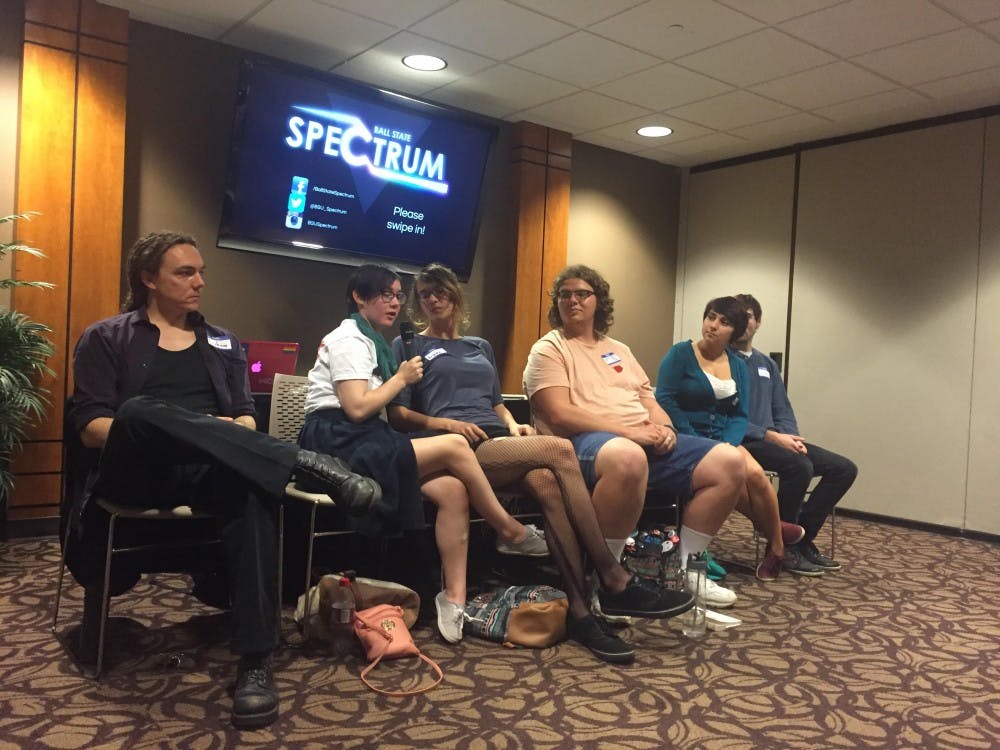While many would say relationships are traditionally monogamous, some people don’t think their love should be confined to one person.
Ball State Spectrum held a panel Oct. 6 to talk about this less-common type of relationship — polyamory.
"Polyamorous" is an umbrella term for various types of intimate relationships involving more than one person at a time.
According to a presentation given at the panel, a polyamorous relationship is consensual and not deceptive and includes just as much, if not more, commitment as a monogamous relationship. In these type of relationships, there is no secrecy, and all people involved are aware of the terms of the relationship.
However, there is a difference between having a polyamorous relationship and having an open relationship, said Jeff Owens, a senior creative writing major who is polyamorous and served on the panel.
“An open relationship, in my experience, is a lot more casual,” Owens said. "Whereas a poly relationship is a lot more serious.”
Owens, who is currently only in one serious relationship, said he and his partner are not currently bringing anyone new into the relationship — but they are not closed off to that option. Owens describes himself as "mostly heterosexual," but believes that could change over time because sexuality is fluid on a spectrum.
“Like, to say that I’m just heterosexual, I almost feel like that’s impossible,” Owens said. “It’s not just sexuality that’s a spectrum in life. I mean, it’s attraction in general.”
According to the presentation, those in polyamorous relationships sometimes have what they call their “primary,” which is the person with whom they feel the deepest emotional bond.
Others will also have a “secondary” or “secondaries,” which are people with whom they feel less of an emotional bond with in comparison to their “primary.”
Polyamorous relationships differ depending on the people involved, the panelists said, and some people set specific boundaries.
There are many types of polyamorous relationships such as “V”, “triad”, “quad” and “polycule.”
- “V” is where one person is involved with two people who are not connected to each other.
- “Triad” is a relationship between three people that differs from “V” because the three people are all connected.
- “Quad” is a relationship among four people.
- “Polycule” is a complex interconnected relationship involving several “primaries” and “secondaries.”
Those who served on the panel also made the distinction between polyamorous and polygamy. Polygamy, which involves being married to more than one person, is illegal in the United States and does not equate to the definition of a polyamorous relationship.
Because of these differences, some of the panelists said they hope to one day end the confusion many have about the two relationships.





